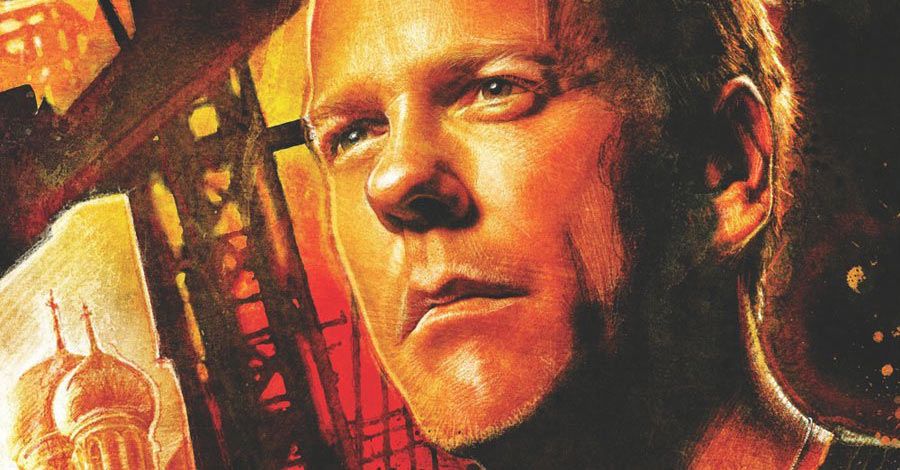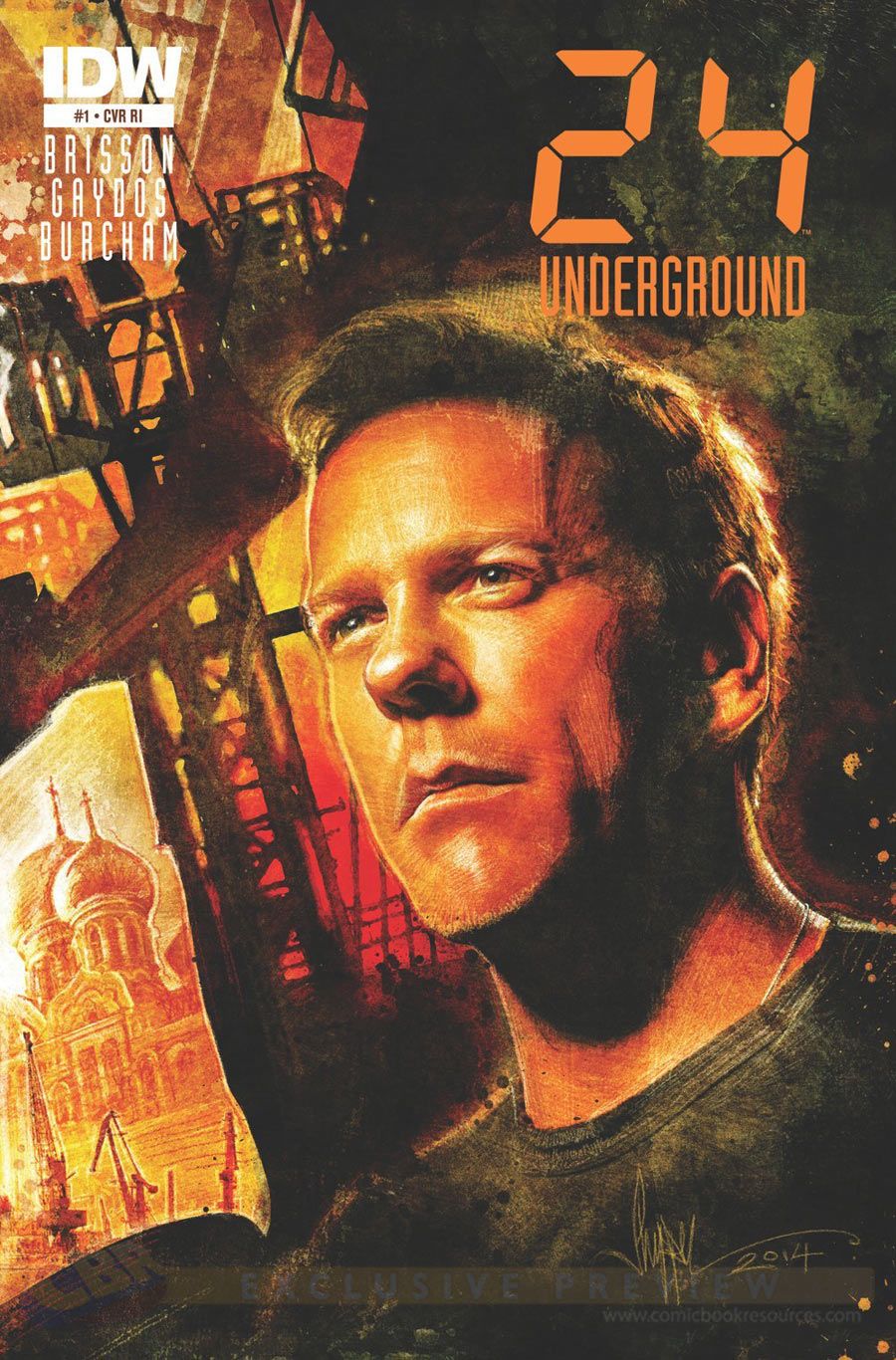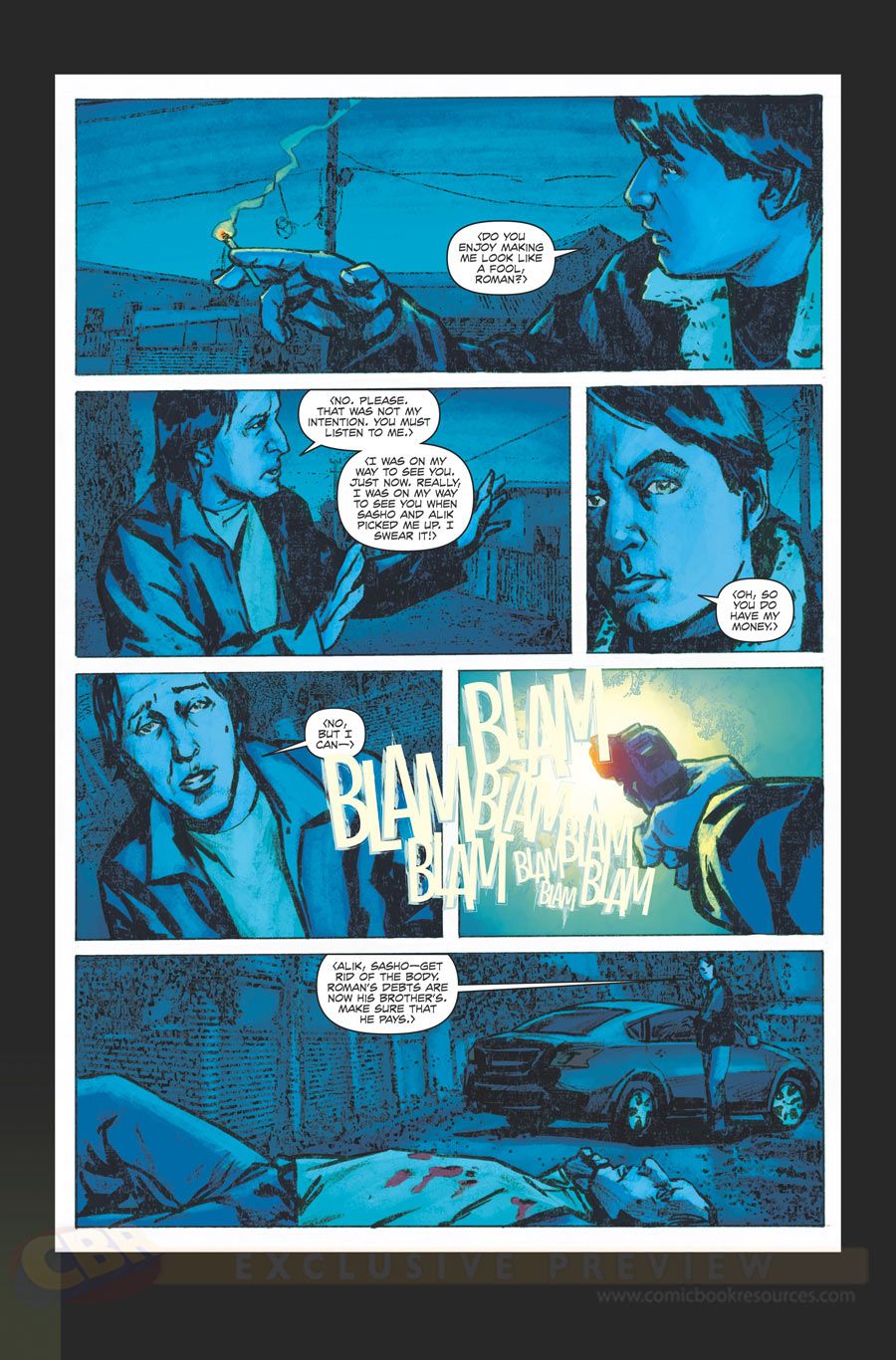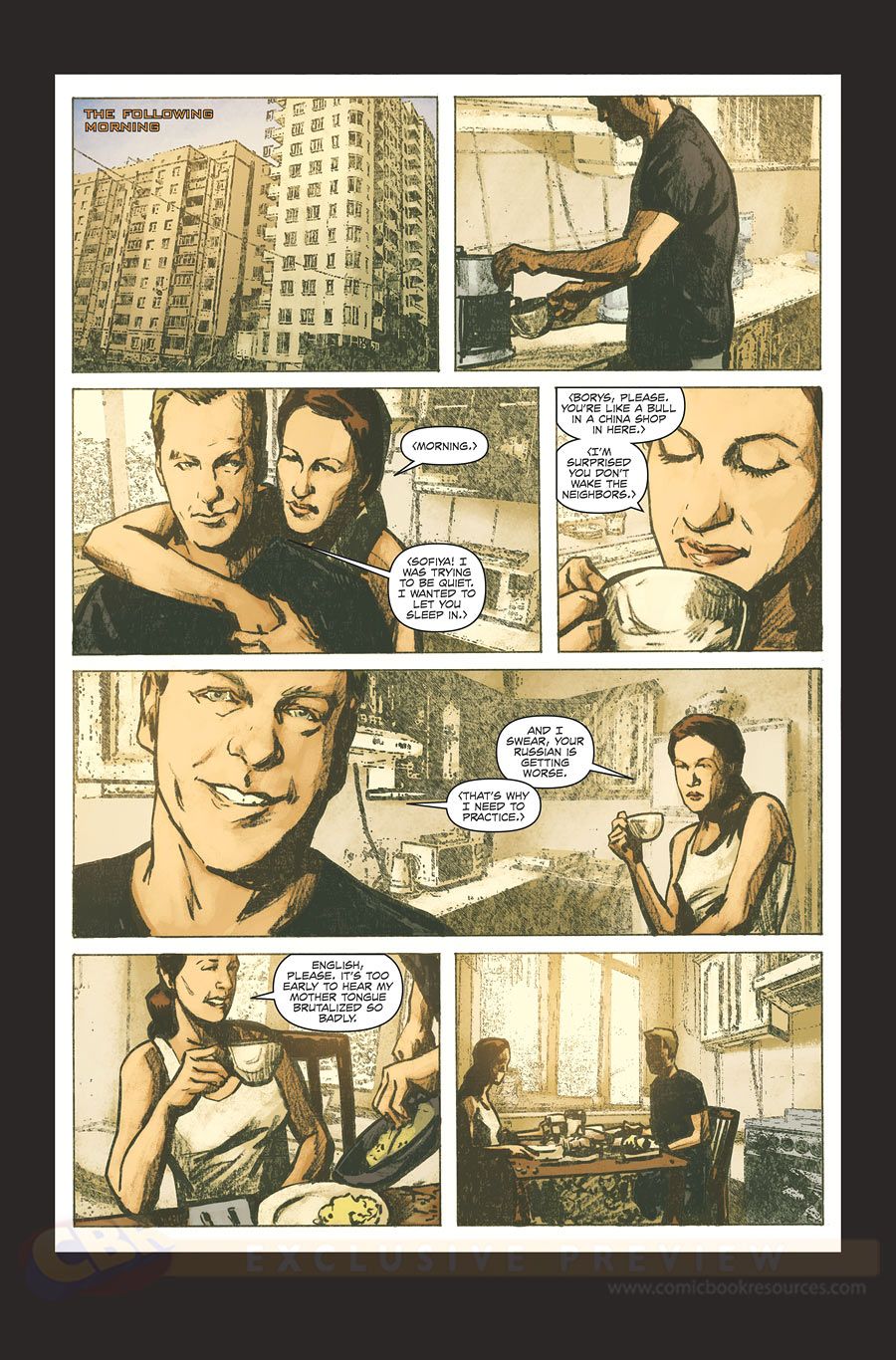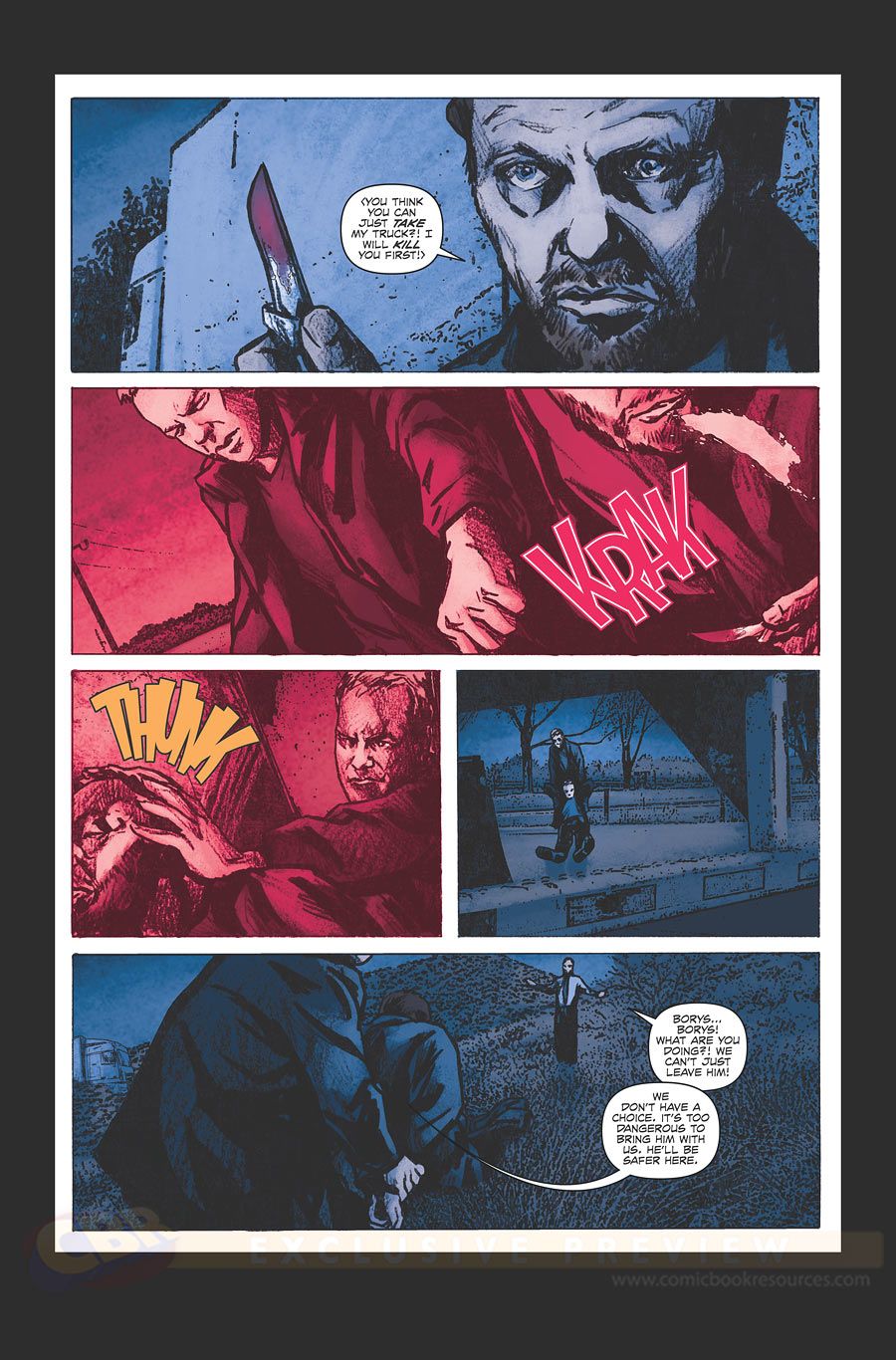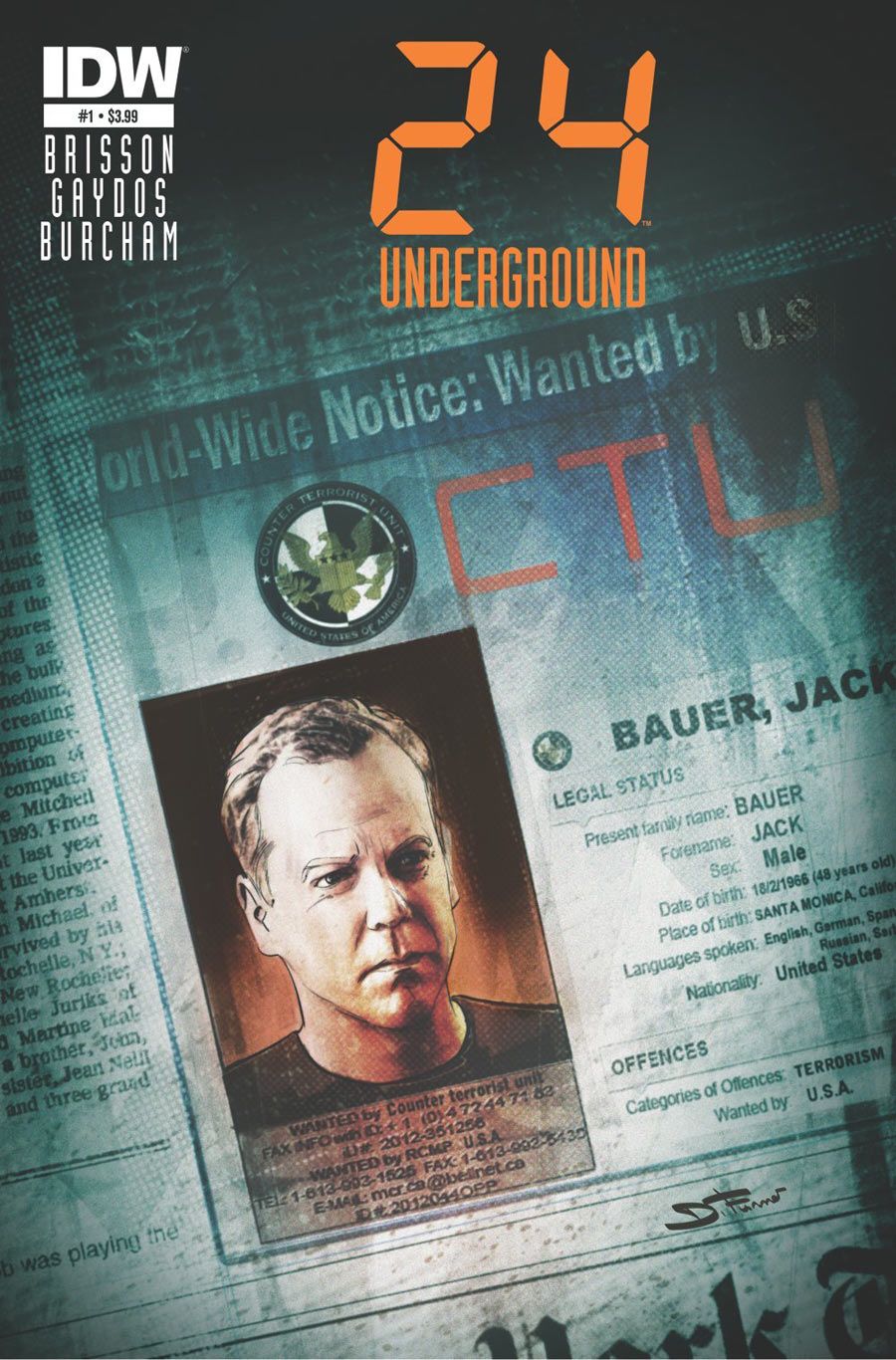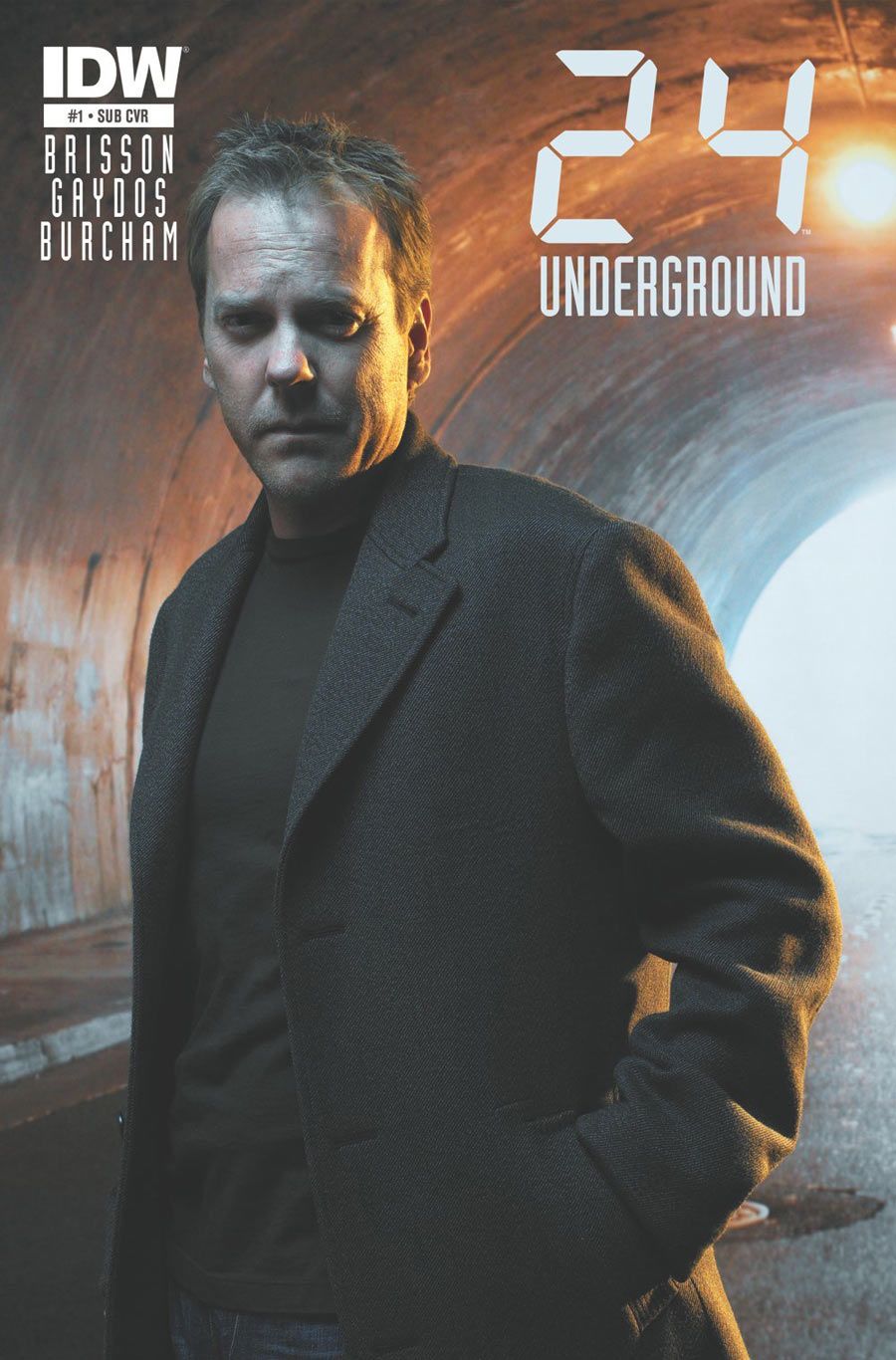Jack Bauer's got one more day to kill this April when IDW Publishing releases and all-new "24" series by writer Ed Brisson and artist Michael Gaydos. Based on the popular real-time FOX TV show about anti-terrorist agent Jack Bauer, the mini is hitting comic shops at just the right time, since Jack, Chloe and company are set to return to TV this Spring in "24: Live Another Day."
Brisson, known to fans for his work on "Sheltered" and "Sons of Anarchy," spoke with CBR News about Jack Bauer's return to comics in "24: Underground," revealing along the way why Jack's been hiding out in the Ukraine, how the comic's story ties into "Live Another Day," the effect real world controversies surrounding the NSA inform the fictional world of "24" and much more.
CBR News: Ed, what's this "24" story about?
Ed Brisson: Jack is hiding out in Ukraine, trying to keep a low profile. He's trying to live a normal life -- as normal as possible when you're on the run from the FBI, CIA and CTU. But, as it happens, trouble has a way of finding Jack. Before he knows what's happening, he's wrapped up in a heist and finds himself on the run from both Russian gangsters and the CIA.
Does your story tie into or reference the upcoming "24: Live Another Day?"
This story is set before "Live Another Day" and is about Jack's time being on the run. I know that they touch on where he was during that time, and this is sort of an exploration of that time. What Jack was doing while he was on the run, where he was before he pops up in "Live Another Day." So, yeah, it sort of leads into the new series.
"24" played out in real-time -- each hour-long episode was an hour of real time. Will you be using a similar gimmick for the comic?Do you think it's necessary to employ some sort of formatting gimmick?
I hope not! In the series, we don't have the ticking clock. While things take place roughly over a 24-hour period, we opted not to break it down by hour within the comic. In a lot of ways, that felt too artificial to do in print. In the show, it works because each episode is an hour, so you're following along in real time, but in the comic, you don't have that same forced time span.
Will previous IDW "24" books factor into your story or is your series a fresh start?
In a lot of ways, this is a stand-alone story. So, someone who hasn't watched the show or read the previous IDW books can come to it and can follow along without needing too much background information. That said, at least one character from one of the previous IDW books will be playing a major role in this series.
Michael Gaydos' style seems perfectly suited for a real-world espionage book like "24." What's it like working with him on this project?
It's great. I'm a huge fan of Michael Gaydos. Like a lot of life-long comic readers, I had a period where I stopped reading comics. "Alias" by Gaydos and Bendis is one of the books that pulled me back in. So, to now be working with him... just feels great.

I agree his style is great for this type of story. The pages I've seen so far have been pretty amazing.
Do you think the NSA revelations have changed the way we should view a secret agent like Jack Bauer?
Sure. I think that we're in a time that we're seeing the tactics used in "24" to catch terrorists used on everyday citizens. There are real reasons to be concerned about that, absolutely. I'd like to think, though, that this sort of broad monitoring of US citizens is something that Jack would be against.
What's your experience with "24" as a show?
It's one of the few shows that I would watch weekly while it was on. In fact, it was one of the reasons that my wife and I initially got cable. We'd power watched the first three seasons on DVD after our video store had given us a free rental of the first disc of season one. After that, we called the cable company so that we could follow along weekly.
For me and a lot of friends, it was one of those water cooler shows. We'd sit around talking about it the next day at work.
Is it harder or easier to write adaptations of TV and film properties than creator-owned material? Is adapting "24" any different than writing "Avengers" comics when you didn't create the "Avengers?"
Both, creator-owned and adaptations, use different creative muscles. Obviously, with creator-owned, I've been with the characters since their inception. Generally I understand their past and motivations more than anyone else, so it's an easier process to get into that character's head. There's not the same 5, 10, 50 years of continuity to abide by. You're generally free to explore what you want.
With adaptations, licensed properties or when using company/established characters, you have years of history to abide by, as well as the future plans for the character. You're generally more limited in what you can do. Of course, that's not necessarily a bad thing. Working within set parameters often forces you to become more resourceful, get a little more creative.
Many people might not realize it, but in addition to writing, you're a prolific letterer. Did lettering other writers' work, which requires you to follow their stories and dialogue very intimately, help you develop your own style of writing at all?
Sure, it helped. You get a sense of how much text you can fit into a panel, how much dialog will work on a page.
I've been writing, drawing, lettering and even coloring my own comics for the better part of two decades, so I'd already had a sense of my own style, but once I started to letter books professionally, that's when I really started to look at what works and what doesn't work. I really try to not overwrite, try to give the art room to tell the story. There's nothing worse than page after page of talking heads.
"24" #1, by Ed Brisson and Michael Gaydos, hits shelves this April.

